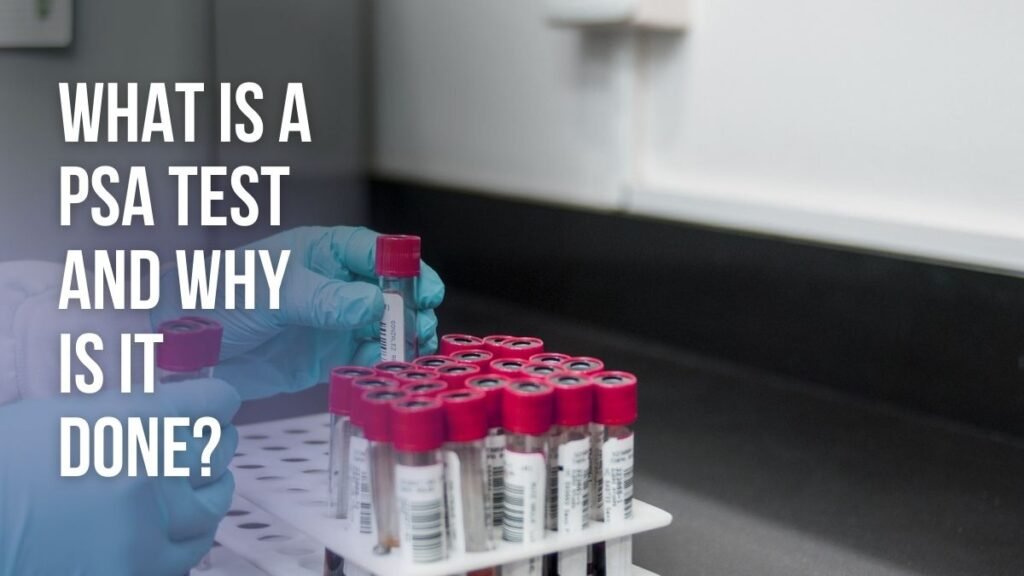
What is a PSA test?
The PSA test is a blood test that is done to find whether you have prostate cancer. The prostate is a small gland, found only in men. It secretes several fluids and enzymes that protect a man’s sperm.
One of the proteins that the prostate makes is Prostate-specific antigen (PSA). A PSA test is done to check the amount of PSA flow in the blood. If PSA is high, there are higher chances of suffering from prostate cancer.
Prostate cancer is commonly found in men in their 50s to 80s. Though every man should do the PSA test while they still have time, the screening itself comes with all sorts of risks. Sometimes the procedure of the test itself can give your prostate cancer by increasing the flow of PSA in your blood.
Symptoms
Though early stages of prostate cancer do not have symptoms, later when advanced, it can show some of the following symptoms –
- Problem in urinating
- Decreased flow of urine
- Blood in the urine
- Blood trace in semen
- Bone pain
- Weight loss
- Erectile dysfunction
Factors that increase your risk of prostate cancer –
- Older age
- Family history of prostate cancer
- Race
- Obesity
Why should the PSA test be done?
The PSA test helps to detect the level of Prostate-specific antigen in your blood. A high level of PSA in the blood means a higher chance of having prostate cancer. A faster detection may help treat the patient earlier.
A blood sample is taken from your vein. This blood sample gets analyzed and examined to show your PSA levels.
PSA levels in your body are judged by nanograms of PSA per milliliter of blood. There is no range or cutoff for PSA levels, the doctor shall decide whether you should take the PSA test or not.
Depending on your PSA level, if it is very high, doctors might suggest you get a biopsy done, so that they have a sample tissue from your prostate and examine it to find cancerous tissues.
Benefits of the PSA test –
The PSA test helps to detect your prostate cancer in an early stage, giving you the time to consult doctors and do as they say. The test result gives a person and his doctor the right idea about the next step. Prostate cancer grows very rapidly once it reaches a stage, to prevent all that a patient must take the necessary step as told by doctors.
Shortcomings of PSA test –
The test does not come with perfection; it faces certain limitations too –
- A high PSA level in a report does not always mean it is prostate cancer. There are other reasons why PSA levels can be high in a person’s body. Sometimes the PSA level can be high due to an enlarged prostate (also known as benign prostatic hyperplasia or BPH) and an inflamed or infected prostate (prostatitis). PSA levels also tend to normally increase with a person’s age.
- PSA levels can also be low in a person’s body, given he is taking some kind of medication for treating BPH or other urinary infections. These certain medications can decrease the level of Prostate-specific antigen in the blood. Also, obesity can decrease the PSA flow.
- PSA test reports can sometimes be misleading. It is not always that your high PSA level could only mean prostate cancer, some people may have a high-level PSA as a natural condition. Whereas, there are also cases seen where a person with prostate cancer has shown no traces of high PSA levels.
- Some prostate cancers detected by the best, may not even be deadly. It is possible to live out a low stage of prostate cancer till the end of your life.
Potential risks associated with PSA test –
There are several risks that one might face to act after they have got their PSA test reports –
- Biopsy issues – taking a sample for biopsy can lead to extreme bleeding, tissue infection, tissue damage, punctured organs, skin numbness. The biopsy procedure can also increase the spread of cancer in your body.
- Psychological effects – we all are pretty shaken up with a bad test report. The PSA test and its results can cause anxiety and palpitations. The fear and worry of having cancer, can not only affect our health but also our mental health.
Lastly, it is important to consult not one but a few doctors simultaneously, to have a better idea of what you should do. Right consultation with doctors helps you to discuss the aftermath of the PSA test, what should he do next if he gets a bad report, and lastly how regularly he shall go through the test even if it is negative this time. Be sure to seek consultancy from experts to avail more knowledge about this topic.